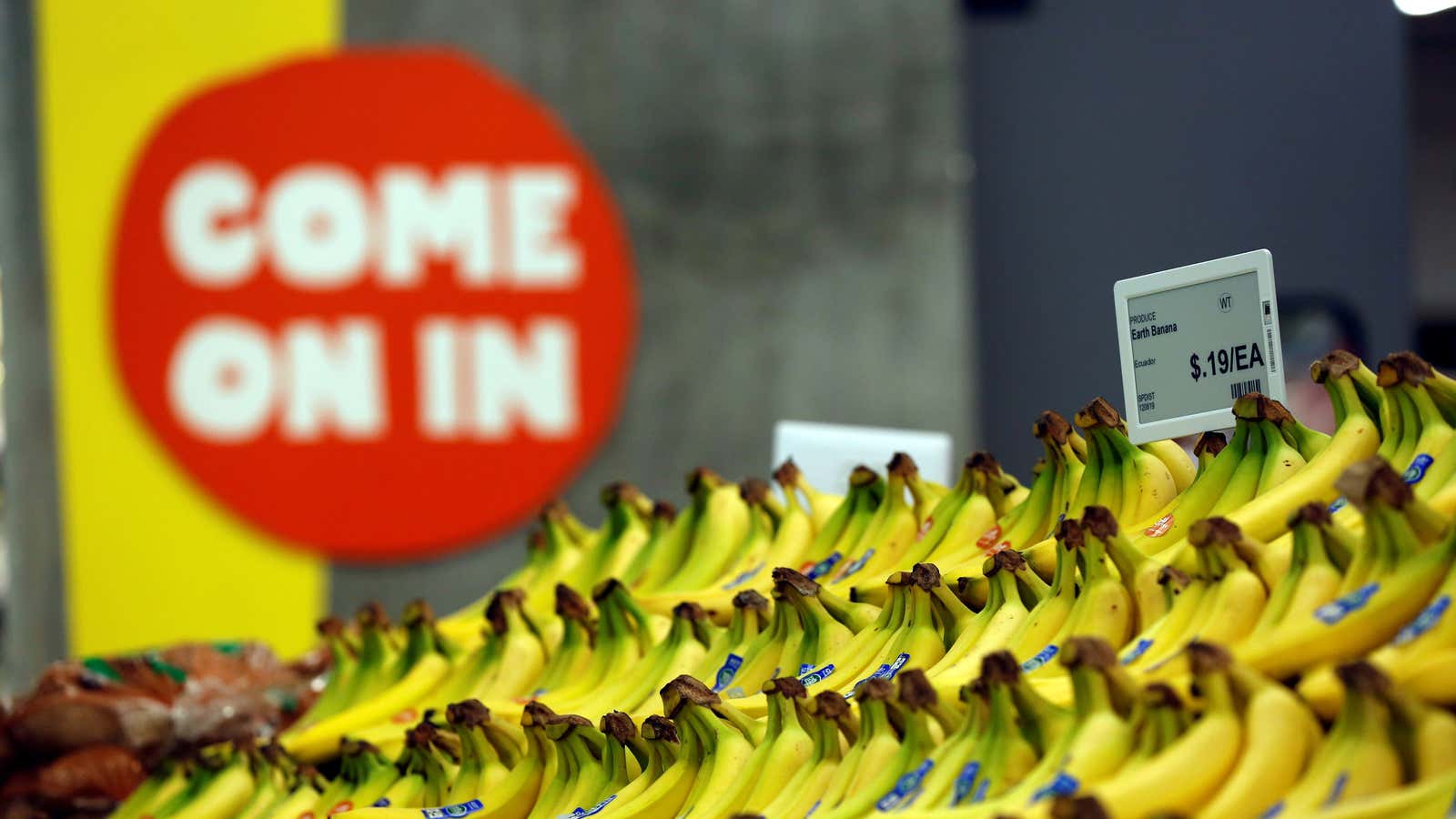Super-cheap discount grocery stores are on the rise, and two companies are paving the way. The German brands Aldi and Lidl have gained a strong foothold in Europe and in the US, they’re just getting started on their goal to aiming to take 20% of the overall grocery-store market share. They’re able to do so by offering shoppers food options at prices that rival Walmart and Food Lion.
But these discounters’ relentless charge into the market isn’t good news for everyone. In the pitched grocery-chain battle, it’s all about who can cut costs the most and still turn a profit. For farmers, these price wars can threaten their livelihoods. Just look to the banana.
In Colombia, which exported about $918 million in bananas last year to more than 20 countries (85% of its exports went to Europe), the Banana Association of Magdalena and La Guajira (ASBAMA), an industry trade group, said this week it isn’t happy with a recent unilateral decision by Aldi to reduce the purchase price of a banana box by $0.60 cents in 2019. Bananas are sold by farmers (pdf) to companies in boxes, which on average can cost between $7 to $16 for around 40 pounds (18 kg) of fruit.
It’s unclear where the intended savings from such a price cut would go, be it directly to Aldi’s shoppers or elsewhere in the food supply chain. Regardless, the farmers say the move does two things: it hits their bottom lines and hurts the overall quality of the labor, and, therefore, the food produced.
In many cases, farmers must comply with labor, social, and environmental sustainability standards set by buyers like Aldi and independent third-party certification groups, such as Fair Trade. That’s great for a seller like Aldi, which can market its bananas to its European customers as a sustainable and labor-friendly product. But what most Aldi shoppers don’t know is that the expense of meeting those standards is often heaped entirely onto the farmers. Now that Aldi is demanding a lower price on bananas, the farmers are threatening to pass those cuts to their production costs, meaning jobs could be lost, and sustainability efforts ended.
“A unilateral reduction of the price would go against a production based on sustainability,” ASBAMA said in its statement. “We respectfully request Aldi reconsider this decision, which will affect the sustainability of an important production line.”
The site Numbeo ranks countries by their respective cost of living by comparing the price of healthcare, property, and some commodities—including bananas. A majority of its top-15 most-expensive places to buy bananas are in Europe, where Aldi has an established presence. In the US, a kilogram (a little over 2 lbs) of bananas—estimated to be about a six-to-eight piece bunch of the fruit—goes for $1.48 on average, putting the country at 38th on the list. At the bottom of the list (which includes 90 countries, is Egypt, where a kilogram of bananas costs $0.65 on average.
Aldi is widely known for its cheap produce, and it’s possible its new banana-buying policy may cause some of the European countries on this list to fall off. That remains to be seen. In any case, this is textbook Aldi, which has a track record of using its market share and consumer appeal to aggressively demand lower prices from suppliers. Some suppliers cave. Others simply walk away. That’s what happened in Ireland with milk producers. But that becomes tougher to do as Aldi gains a bigger foothold in a market ecosystems.
